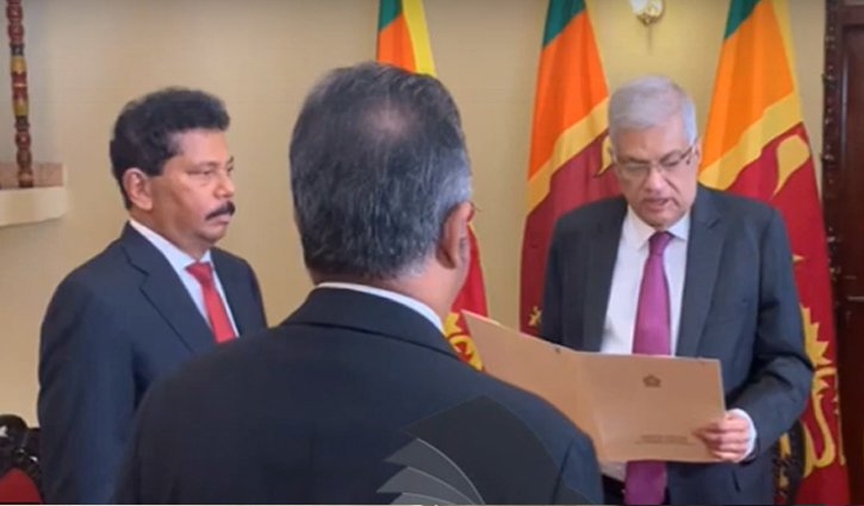
AP, COLOMBO :
Prime Minister Ranil Wickremesinghe was sworn in as Sri Lanka’s interim president Friday until Parliament elects a successor to Gotabaya Rajapaksa, who resigned after mass protests over the country’s economic collapse forced him from office.
The speaker of Sri Lanka’s Parliament said Rajapaksa resigned as president effective Thursday and lawmakers will convene Saturday to choose a new leader. Their choice would serve out the remainder of Rajapaksa’s term ending in 2024, said Speaker Mahinda Yapa Abeywardana. He expects the process to be done in seven days.
That person could potentially appoint a new prime minister, who would then have to be approved by Parliament. With Rajapaksa done, pressure on Wickremesinghe was rising
Opponents had viewed his appointment as prime minister in May as alleviating pressure on Rajapaksa to resign. He became the acting president when Rajapaksa fled Sri Lanka on Wednesday.
Rajapaksa arrived in Singapore on Thursday and his resignation became official on that date. The prime minister’s office said Wickremesinghe was sworn in Friday as interim president before Chief Justice Jayantha Jayasuriya.

Sri Lanka has run short of money to pay for imports of basic necessities such as food, fertilizer, medicine and fuel, to the despair of its 22 million people. Its rapid economic decline has been all the more shocking because, before this crisis, the economy had been expanding, with a growing, comfortable middle class.
Protesters cooked and distributed milk rice — a food Sri Lankans enjoy to celebrate victories — after Rajapaksa’s resignation. At the main protest site in front of the president’s office in Colombo, people welcomed his resignation but insisted Wickremesinghe also should step aside.
“I am happy that Gotabaya has finally left. He should have resigned earlier, without causing much problems,” Velauynatha Pillai, 73, a retired bank employee, said as patriotic songs were blaring from loudspeakers.
But he added that “Ranil is a supporter of Gotabaya and other Rajapaksas. He was helping them. He also must go.”
Protesters who had occupied government buildings retreated Thursday, restoring a tenuous calm in the capital, Colombo. But with the political opposition in Parliament fractured, a solution to Sri Lanka’s many woes seemed no closer.

